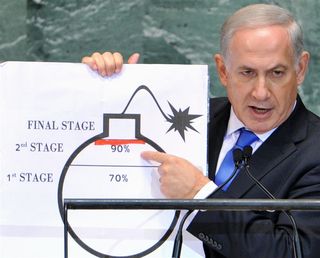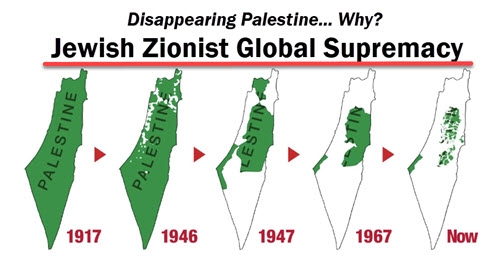 Israel is becoming increasingly isolated in its rants about setting a deadline for talks over Iran’s nuclear energy program and is ratcheting up its bellicose rhetoric against the country as the West will not attack Tehran “over a nonexistent bomb,” an article in the New York based The Nation newspaper has said.
Israel is becoming increasingly isolated in its rants about setting a deadline for talks over Iran’s nuclear energy program and is ratcheting up its bellicose rhetoric against the country as the West will not attack Tehran “over a nonexistent bomb,” an article in the New York based The Nation newspaper has said.
Analyzing international reactions following Iran’s recent talks with the P5+1 (Britain, China, France, Russia, and the US plus Germany), the article published by The Nation said, “Indeed, there is absolutely no chance that the United States will choose to use the infamous military option that is always ‘on the table,’ since war with Iran would have incalculable and catastrophic consequences.”
Iran and the five permanent members of the UN Security Council plus Germany wrapped up their latest round of negotiations on April 6 in the Kazakh city of Almaty.
Israel’s new Strategic Affairs Minister Yuval Steinitz described the talks as a “failure” and said, “The time has come for the world to take a more assertive stand and make it unequivocally clear to the Iranians that the negotiations games have run their course.”
He added that talks would not reach any conclusion “without a significant and tangible threat, including a short timetable.”
US Secretary of State John Kerry, however, said on April 7 that, “There was somewhat of a gap that remains, obviously, as a consequence of the discussions that they had in Almaty. But the door is still open to doing that, and yes, indeed, it is important to continue to talk and to try to find the common ground.”
Highlighting the stances adopted by China and Russia about recognizing Iran’s right to enrich uranium, the article said the US and its allies are aware that without offering such an option the impasse will not be broken.
Russian Deputy Foreign Minister Sergei Ryabkov said on Sunday that, “Russia says clearly the recognition of all rights of Iran under [the Treaty on the Non-Proliferation of Nuclear Weapons,] including the right to enrichment in exchange for the IAEA (International Atomic Energy Agency) control over Iran’s nuclear program, is the final model. This can be spread out to any depth.”
The article added, “Israel is more and more isolated, and its demand for military action is sounding ever more shrill. By now, the Israelis have figured out that the United States and the West isn’t going to attack Iran over a nonexistent bomb, and despite their bluster Israel doesn’t have the capacity to go it alone.
Meanwhile both China and Russia have clearly stated that the P5+1 must recognize Iran’s right to enrich uranium, and the more they repeat that view the more the United States and its Western allies will have to move overtly in that direction as part of a deal. So far, Washington has resisted a forthright declaration that Iran has the right to enrich, though it’s increasingly recognized in Washington that no resolution to the standoff is possible without including that in a final package.
Inside Iran, candidates for president and their allies, inside and outside Iran’s parliament, are competing with each other to defend Iran’s nuclear program and its right to enrich, and they’re lining up to blame the United States and the West for refusing to accept the idea. For that reason alone, it’s inconceivable that Iran would capitulate to the United States, especially because doing so would make it appear as if strict economic sanctions against Iran forced its leaders to give in.




